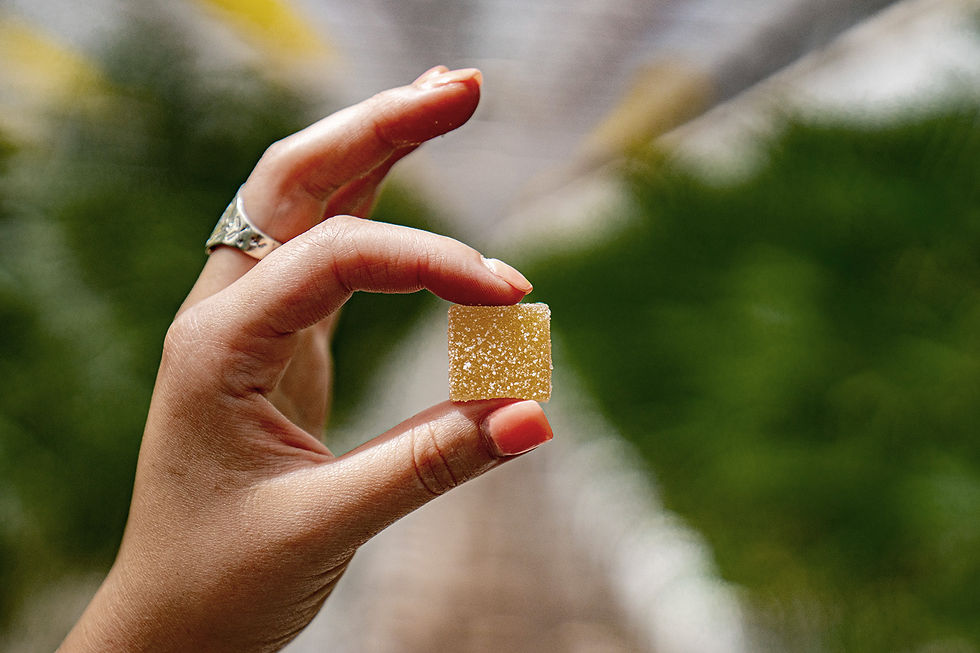The Dynamic Duo: Hemp + Soil
- Apr 17, 2020
- 4 min read

The 50th anniversary of Earth Day arrives at a most uncertain time as the Coronavirus Disease 2019 (COVID-19) rapidly proliferates across the planet. In a matter of weeks, governments around the world have taken drastic actions to limit the spread of the virus with citywide lockdowns and restricted mobility for only essential needs.
Despite criticisms for governmental shortcomings to COVID-19, rapid societal coordination by global citizens point to a new chapter in resiliency and adaptation. Thus far, the climate crisis has been difficult to imagine and even harder to experience with dire consequences being projected years to decades ahead. As emotional beings, we operate on much shorter timescales which can insulate us from designing for a resilient future. However, we are seeing immediate effects of massive, coordinated action for things like air pollution reduction. If anything, COVID-19 has given us a window “of what could be” if we reacted in the same manner for our environment. We may have a rare moment to address some more systemic issues that COVID-19 is revealing. With these new perspectives, can we paint them into reality? Where to start? Solutions may be nearer than you think.
From the Ashes, Regeneration
The stage is set for regenerative approaches. Instead of solving problems, how can we design for potential? How can we develop systems of resiliency vs efficiency? How can we strengthen communities that make up our network? As always, we don’t have to look too far. In fact, natural ecosystems have evolved tried and true methods formed from billions of years of refinement. It all stems from teamwork and diversity. The more diverse an ecosystem is, the more resilient it is to disruption. These principles translate directly into strong communities and their relationships with one another.
The Dynamic Duo: Hemp + Soil
Strong networks depend on strong foundations, and for us on Earth, that foundation starts with soil. Healthy soil lies at the center of life on Earth. It fuels photosynthesis that provides food and oxygen to us surface dwellers while simultaneously drawing down carbon dioxide to stabilize our climate. The United Nations deemed healthy soil building as one of the superior methods to reverse global warming not only because of its multiple functions, but because it is an accessible and equitable method to communities worldwide. By learning to build healthy soil and grow food locally, methods like regenerative agriculture can significantly increase community resiliency in the face of looming uncertainty. For these reasons, Kiss the Ground has dedicated its mission to spreading resiliency and community through their programs and education.
Of course, these approaches excel through teamwork, which is why Kiss the Ground has teamed up with Asha Apothecary to co-create a regenerative future for both healthy soil and hemp. Like soil, hemp has immense potential to provide multiple solutions across different industries. Humans have been cultivating hemp for thousands of years, and today, hemp is being researched as a green alternative for medicines, textiles, fuels, building materials, and phytoremediation. Since the national hemp industry is in its infancy, Asha Apothecary and Kiss the Ground see a pivotal opportunity to help steward it in a positive direction for both people and planet.
It is no secret that we have contaminated much of our soil through industrial agriculture, chemical pesticides, and more. However, hemp has been identified as a superior candidate to decontaminate soil through phytoremediation due to its high absorption of heavy metals, high biomass, deep roots, and short life cycle. Phytoremediation can be defined as “the use of plants for the removal and containment of contaminants in soil, surface waters, and groundwaters”. Hemp phytoremediation had a moment in the international spotlight when it was used to help clean up soil after the Chernobyl nuclear power plant disaster in 1986.
So, healthy soil grows healthy hemp while hemp can also remediate soil in a beautiful display of symbiotic teamwork.
How can we help fuel the movement?
Due to the many potential benefits of CBD and the passage of the 2018 Farm Bill, hemp CBD has become the fastest-growing herbal wellness solution in recent years for things like remedying pain, anxiety, focus, and sleep. This is great because the increasing demand has created a market and opportunity for hemp’s many other uses like phytoremediation. Although CBD is gaining in popularity, the direction of the industry is still up for debate. Like with other sectors, there are many companies with questionable practices with little to no accountability for social and environmental impact. This is why it is essential to support companies who have integrated social and environmental initiatives into their DNA. Asha Apothecary has demonstrated this commitment not only through the donation of their proceeds to the Kiss the Ground Farmland Program, but also through their other educational and impact initiatives. Two of the co-founders are a husband-wife duo who teach regenerative studies at Cal Poly Pomona where they integrate Kiss the Ground curriculum. Asha is also working to collaborate with the University of Southern California on CBD research as well as with NEXUS organization.



Comments